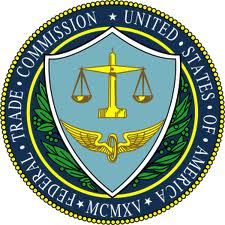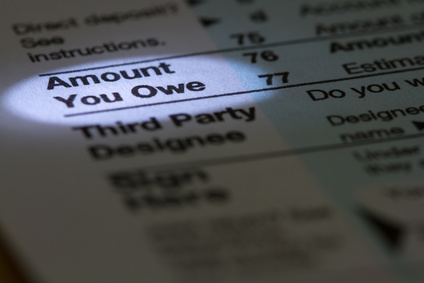The U.S. Court of Appeals for the Second Circuit held that even if a class action case is brought pursuant to a fee-shifting statute, common-fund principles control fee awards authorized from a common fund, and a common-fund fee award may be calculated as the lodestar or as a percentage of the common fund. Accordingly, the Second Circuit affirmed the trial court’s ruling finding that lead plaintiff’s counsel was entitled to its requested fee and expense award. A copy of the opinion in Fresno County Employees’ Retirement Association v. Isaacson/Weaver Family Trust is available at: Link to Opinion. This case involved…
Posts tagged as “Second Circuit”
The U.S. Court of Appeals for the Second Circuit held that a debt collection letter that informs the consumer of the total, present quantity of his or her debt satisfies section 1692g of the federal Fair Debt Collection Practices Act (FDCPA) notwithstanding its failure to inform the consumer of the debt’s constituent components or the precise rates by which it might later increase. The Court further held that such a letter does not violate section 1692e of the FDCPA for failure to inform the consumer that his or her balance might increase due to interest or fees when the letter…
The U.S. Court of Appeals for the Second Circuit recently affirmed entry of summary judgment in favor of the Federal Trade Commission and against 13 corporations and their two co-owners for violations of the Federal Trade Commission Act and the federal Fair Debt Collection Practices Act for allegedly placing unlawful and threatening collection calls to consumers seeking to collect payday loan debt. In so doing, the Second Circuit concluded that the trial court did not err in holding the offending corporations’ owners jointly and severally liable for the disgorgement assessed against all defendants, which was affirmed as an appropriate amount…
In an unpublished ruling, the U.S. Court of Appeals for the Second Circuit held that when a debt collector did not seek to collect fees and interest after default, its letter to a borrower that did not state whether fees and interest continued to accrue after default did not engage in deceptive or misleading conduct in violation of the FDCPA. A copy of the opinion in Derosa v. CAC Financial Corp. is available at: Link to Opinion. After a borrower defaulted on her credit card account, the original creditor assigned the account to a debt collector. The debt collector sent a letter…
Just over two years to the day after it issued its opinion in Avila v. Riexinger & Associates, LLC, the Second Circuit Court of Appeals has issued a critical blow to a recent spate of FDCPA lawsuits attempting to create liability out of thin air. A copy of the opinion in Taylor v. Financial Recovery Services is available at: Link to Opinion. In Avila, the Second Circuit held that a debt collector violates the FDCPA by stating the “current balance” of a consumer’s debt without disclosing that the balance is increasing due to the accrual of interest or fees. In Avila, the debt…
The U.S. Court of Appeals for the Second Circuit recently affirmed the entry of judgment on the pleadings against the plaintiff in a putative class action alleging that a text message sent by a third party on behalf of a hospital reminding the plaintiff about a flu shot violated the federal Telephone Consumer Protection Act (TCPA), holding that the plaintiff provided his prior express consent to receive such messages in a hospital admission form. A copy of the opinion in Latner v. Mt. Sinai Health System, Inc. is available at: Link to Opinion. The plaintiff went to a medical clinic owned by a…
The U.S. Court of Appeals for the Second Circuit recently remanded a federal False Claims Act lawsuit based upon alleged misrepresentations made by a bank when it applied to borrow funds from the Federal Reserve System’s discount window. The Second Circuit remanded the case to the trial court to determine whether the relators adequately alleged the materiality of the bank’s alleged misrepresentations. In so doing, the Second Circuit held that the Supreme Court of the United States had abrogated both the express designation requirement for implied false certification claims, and the particularity requirement for express false certification claims, in its…
The U.S. Court of Appeals for the Second Circuit recently joined the Seventh Circuit in holding that printing a credit card expiration date on an otherwise properly redacted receipt does not constitute an injury in fact sufficient to establish Article III standing to bring a claim alleging a bare procedural violation of the federal Fair and Accurate Credit Transactions Act of 2003 (FACTA). Accordingly, the Second Circuit affirmed the ruling of the trial court dismissing the plaintiff’s amended complaint. A copy of the opinion in Crupar-Weinmann v. Paris Baguette America, Inc. is available at: Link to Opinion. The plaintiff brought…
The U.S. Court of Appeals for the Second Circuit recently concluded that a consumer’s consent to receive manual or automated telephone calls is irrevocable under the Telephone Consumer Protection Act (TCPA) when the consent was included in a binding contract. The Second Circuit described the issue as one not previously addressed by the Federal Communications Commission (FCC) or any court of appeal – i.e., “whether the TCPA also permits a consumer to unilaterally revoke his or her consent to be contacted by telephone when that consent is given, not gratuitously, but as bargained-for consideration in a bilateral contract.” The Court held that consent…
The U.S. Court of Appeals for the Second Circuit recently affirmed the dismissal of LIBOR-manipulation fraud claims brought by a group of hotel-related entities and their investor against a bank and two of its subsidiaries. In so ruling, the Second Circuit held that: (a) the borrower and related entities lacked standing to sue because they failed to list their potential claims in their bankruptcy case and the claims were barred by the doctrine of judicial estoppel; and (b) the claims of the investor and guarantors were untimely and barred by the law of the case. A copy of the opinion…
The U.S. Court of Appeals for the Second Circuit recently affirmed the dismissal of a “data breach” lawsuit against a retailer, holding that the plaintiff lacked standing for failure to allege a cognizable injury. A copy of the opinion in Whalen v. Michaels Stores, Inc. is available at: Link to Opinion. The plaintiff made credit card purchases at a retail store and, two weeks later, her credit card information was fraudulently presented to make purchases in a foreign country. The plaintiff immediately cancelled her credit card and the fraudulent charges were not incurred on the card, nor was she liable for…
The U.S. Court of Appeals for the Second Circuit recently reinstated a complaint alleging a debt collector violated the federal Fair Debt Collection Practices Act when it sent a payoff statement containing unaccrued fees and costs without providing any information as to how those fees were calculated or any basis for those fees and costs. In so ruling, the Second Circuit was careful to note that a payoff statement may contain estimated fees and costs if the information in the statement would allow the least sophisticated consumer to determine the minimum amount she owed at the time of the notice,…












